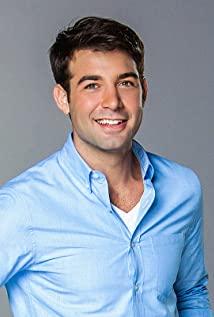A few days ago, I watched "I am not the God of Medicine". That movie, based on a true story, was also highly rated. But I personally don't like it, the main reason is that it doesn't look good. Although the social and practical significance of that film is good, in terms of storytelling, it is really bland, and many times I fast-forward. In short, I don't think I'll watch it a second time.
That's when I thought of "Call Me Number One". This film is also based on reality, but it gives people a feeling of "art is higher than life".
The first time I watched "Call Me No. 1", I was in my third year of high school. I had been at school for too long and I was a little breathless, so I took a leave of absence to go home for a day off. It was on that day that I watched this video and it really touched me a lot. Later, I would watch it again every now and then and love the film more and more.
Movie Synopsis
Back to the movie itself.
"Call Me Number One" tells the story of a young man with Tourette Syndrome who realizes his dream of becoming a teacher. Tourette's patients will often make strange noises, and will also make movements such as turning their heads and bouncing their legs. The most important thing is that all these are impossible to control, just like sneezing. In a way, the protagonist is a disabled person. Because of his strange screams, he often faces strange eyes from others, and is questioned how to teach students in this way. But through unremitting efforts, the protagonist eventually became a teacher and won the best teacher of the year.
The above is the main plot, an inspirational story. But experience has taught us that what really sets a film apart is often not the main plot. If it is a lazy screenwriter, maybe he will feel that such a story is enough to be put on the screen, and the protagonist will be portrayed as a persistent person, and some past memories, love stories, family members will be added to the subplots at will. for or against. However, such a movie will never touch people enough, and it won't make me never get tired of watching it.
"Call Me No. 1" is a master-level adaptation of a true story. Almost no scene is wasted, and it truly achieves both refined and popular tastes. Below, I will elaborate on a few points.
A master screenwriter
In the screenwriting bible "Story", Robert McKee once said:
"From the moment to the eternity, from the square inch to the universe, the life story of each mission provides an encyclopedic possibility. The mark of a master is to select only a few moments from it, but it can show us its entire life."
The film of "Call Me Number One" is only one and a half minutes long, but it does this perfectly, making it seem like the protagonist has experienced a lifetime. It is also based on this that the master level of "Call Me Number One" is well deserved. The whole story is divided into two parts, the former is looking for a job, the latter is teaching, and each introduces different conflicts.
In the first half of the job search, the movie shows the protagonist's past one by one. But instead of really telling stories from childhood, the movie goes back and forth between the present and the past, and it connects seamlessly. The current protagonist is looking for a job, but since he is looking for a job with Tourette Syndrome, it is natural to explain what Tourette Syndrome is and how it affected the protagonist's childhood. The process of finding a job is tortuous. Some principals hide embarrassment, some don't mind, and some are contemptuous. In the childhood experience, the protagonist's unsatisfactory at school, the mother's insistence on finding a treatment plan for him, the father thinking he is naughty and angry, the other Tourette patients, and why the protagonist wants to become a teacher, these are all very detailed Explained clearly and smoothly. The character of the protagonist is very successful, what kind of person is he? What are his life beliefs? Where is the turning point in your life? Almost all showed up in the first half.
However, just knowing what kind of person the protagonist is is not enough inspiration. We also need to see what the protagonist will do when he becomes a teacher.
In the second half of being a teacher, the story revolves around several threads that expand the protagonist's life into more dimensions. Among them, the most important clues are teaching, falling in love, and repairing the relationship with his father. If you subdivide it further, you can see that the teaching plot mainly revolves around three students, and teacher assessment is also introduced; to restore the relationship with the father, a small plot of participating in the master's entrance examination is added. It can be said that although only 45 minutes, but the rich plot, like a gluttonous feast. After the protagonist delivered a speech at the annual teacher's award, the story officially came to an end. The protagonist not only works very hard to overcome obstacles to become a teacher, but is also very good at being a teacher.
The creative scene
The biggest obstacle to adapting a true story is how to balance the real and the good-looking? If the adaptation of the story is too good, then it begs the question, is this true? If it is too realistic, it will be boring, and no one wants to read the boring story, even if it is true, and it will not touch people's hearts.
In "I'm not the God of Medicine", the movie wanted to show the relationship between Xu Zheng and his son, so two pictures were used to show it. One was taking a bath in a large bathhouse, and the other was that the son was unwilling to ask his stepfather for money to buy shoes, but asked his poor father for the money, and Xu Zheng also happily gave the money. When these two pictures came out, my first thought was - "Oh, the director wants to tell me that Xu Zheng loves his son very much, and his son and Xu Zheng are even closer. However, this method is very low."
In contrast, the scene in "Call Me No. 1" is very creative, and it really took a lot of effort. Here, I give a very special scene.
The protagonist has second-date syndrome, and after he has dated a girl once, he has no second date because he is afraid of ruining all the good things. However, in the second half of the story, the protagonist finds his true love, the first date is happy, and they have a second date. Usually, a love scene like this is either better or worse. It's naturally better in this movie. So, how to show the two people have a closer relationship? Maybe a lot of movies will use that classic but cheesy action without thinking—kissing. However, "Call Me Number One" didn't do that.
The two watched the scenery on the wooden platform by the quiet stream, and only said a few words, and the two entered the state of being about to kiss. The protagonist probes to get close to his girlfriend. Just when you think that the two are going to kiss and the romantic music is about to play, the protagonist suddenly calls a "quack" like a duck, which makes his girlfriend happy.
Yes, you don't see the protagonist kissing his girlfriend, but you can definitely tell that the two are getting closer. My goodness! Seeing this scene, I cried out in my heart. This is really wonderful. I read it over and over again, and I admire this wonderful idea. While other movies show love progress with kisses, "Call Me Number One" pushes the relationship forward by not kissing. Not only that, but the protagonist's humorous character can be further demonstrated. I have watched a lot of love movies, but this love scene is the one I remember the most.
Other than that, many of the scenes are creative.
How to make the protagonist determined not to be defeated by Tourette's syndrome? Some people may think that after the protagonist is ridiculed and discriminated by others, the protagonist suddenly wakes up, and I don't want them to win, and I don't want Tourette syndrome to affect my life. Please, how unreal is it to meet challenges enthusiastically in the face of adversity? Most people, when they encounter setbacks and are denied by others, must be in a bad mood, and the same is true for the protagonist. "Call Me Number One" uses a scene where the 12-year-old protagonist tells himself, after watching the desperate lives of other people with Tourette Syndrome, I don't want this. Obviously, this scene is more reasonable and more natural.
How to make the protagonist decide to become a teacher? The easiest way is to have a teacher who is very protective of the protagonist, so the protagonist wants to be a teacher. But such a scene has no effect, and it does not make people feel why the protagonist must be so determined to be a teacher. "Call Me No. 1" did this. The principal knew that the protagonist had Tourette's syndrome, so he let him participate in a school concert, made him make a fool of himself, and then put him on stage. He took this opportunity to explain to the other students and teachers why the protagonist screamed strangely. and how you can help him. Finally, when the protagonist stepped down, everyone present applauded him. To borrow the words of the protagonist: "A few words, education, it seems to open the door to a new world." At that moment, the protagonist must have a deep understanding of the power of education. In this way, the protagonist's persistence and pursuit have a very solid reason.
How can we show the students' recognition and love for the protagonist? It's not enough that the students say it, the movie also uses the death of a little girl student (terminally ill) to show. At the funeral, the protagonist was worried that he would disturb the ceremony, but the little girl's mother invited the protagonist in herself, saying that he was her daughter's favorite teacher, and she must come to give her the last ride. This scene is so ingenious, it brings tears to my eyes.
What would the protagonist say about his acceptance speech? No matter how gorgeous the statement is, it will always be powerless. In the movie, when the protagonist wanted to talk about what he had learned from Tourette syndrome, several children and students in the audience raised their hands. Some of them were originally naughty students, and they answered the question one by one. At this time, you can see more clearly how many people are affected by the protagonist's example.
There are so many creative scenes, it is natural to never get tired of seeing them.
The character of the protagonist
I don't have much research on acting, but the acting of the protagonist of "Call Me No. 1" is really amazing. It is very difficult for me to think about the strange screams and strange movements like Tourette's twitching, to naturally integrate into the scene, and to do movements when speaking lines. Because it is very natural, the image of the protagonist is even more popular.
What impressed me the most was the contagious smile. Looking at the whole movie, the protagonist's positive attitude towards life is very touching. Facing other people's weird eyes, he smiled and said to a girl on a date, "I often see that look, it's envious. He wonders how he can make such a cool voice like me." This attitude , which a lot of people really don't have. Everyone has deficiencies, but it is worth learning to be able to face their deficiencies frankly and not be ashamed of them.
Of course, some people will think that this is the spirit of Ah Q. But don't forget, this attitude will make you focus on the good things, and no one will think that's self-deception.
Of course, when the protagonist was denied by the principal, he was very painful and angry. After the interview, he slapped square discs in the car, pushed his head against the seat, and the pain of biting a pencil was real. Afterwards, he regained his spirits after a phone call with his mother. It would be very fake if he revives his spirit immediately after being denied. Just like Luffy in "One Piece", everyone thinks his optimism is enviable, but no one thinks Luffy is a real person.
On the basis of authenticity and credibility, the optimism of the protagonist really touches people's hearts. Moreover, the optimism of the protagonist also affects the people around him, family members, lovers, children and students are all affected by it. It's hard not to love a protagonist like that. This kind of inspiring positive energy was impressive long before the protagonist became a teacher.
Other than that, one thing that impressed me a lot was the humility of the protagonist. The father of a little girl transferred her to another class because the father was afraid that the protagonist's Tourette syndrome would affect his daughter's studies. But the little girl likes the protagonist's class very much, and often stands at the door and peeks at the protagonist's class. I thought the protagonist would let the little girl come in and have a class together, but the protagonist took her back and said, "You also have a good teacher." The protagonist didn't think that he was the best teacher. Going to be "Long Aotian" with the aura of the protagonist, there is no such arrogance, but only charming modesty.
The dramatic tension
Admittedly, reality is bland and few things achieve the kind of dramatic tension in the story. This is also a problem when adapting a true story. However, "Call Me Number One" handled it very well.
Simply put, Call Me Number One introduces a wealth of diversity. As a child, different adults have different attitudes towards the protagonist's Tourette syndrome. Before the diagnosis, the teacher was angry and forced him to admit his mistake; the mother persisted in trying to cure her son; the father thought he was being naughty, but after the diagnosis, the father still cared about it; the doctor thought he was expressing the anger of his parents' divorce ; classmates are bullying him. When he grew up, the golf course manager did not allow the protagonist to enter the venue because of Tourette's disease, and some golf members invited the protagonist to join him; some daters had a good impression of the protagonist, but they were vague about Tourette's disease; Don't care about Tourette's.
In terms of teaching philosophy, some teachers are working, and their occupation is to complete classroom education; some teachers apologize for throwing a naughty child to the protagonist, obviously he has a different philosophy from the protagonist; some principals recognize the protagonist's education very much The idea is not to hinder their lives because of anything, and they feel that the protagonist sets an example very well; the father doesn't care, he thinks why he has to be a teacher and become a champion; his mother is very supportive of the protagonist.
and so on. This richness brings a grand symphony effect and is full of dramatic tension. At the same time, the story of the movie is also very dynamic. Good things are followed by bad things, and there are constant twists and turns, one after another. This kind of movie, whichever second you jump to, will be deeply attracted and watched with relish.
In addition, the film's lens connection editing is also very smooth. For example, the last scene ends with a round record, and the next scene is connected with a round sunrise; for example, in some excellent transition edits, the last shot cuts across a wall, and the next shot uses this wall as a curtain switch Go to another scene; for example, in the previous scene, the protagonist is sitting in his father's car, and the protagonist's voiceover says "I don't blame him for my dad's tantrums, my strange actions drive him crazy, because he is like my teacher, Don't know why I'm acting weird, just know that it's not allowed" Ending this scene, the next scene is how the teachers at the school treat the protagonist. These smooth scene connections make people very comfortable to watch.
Epilogue
This review is a little more written. I really like this movie, and it's so good. It's just a label for an inspirational film. It's too simple. "Call Me No. 1" is a veritable master work, and it is worth watching several times.
-------------
Public number: Fu Gui film review. Welcome to pay attention.
View more about Front of the Class reviews











